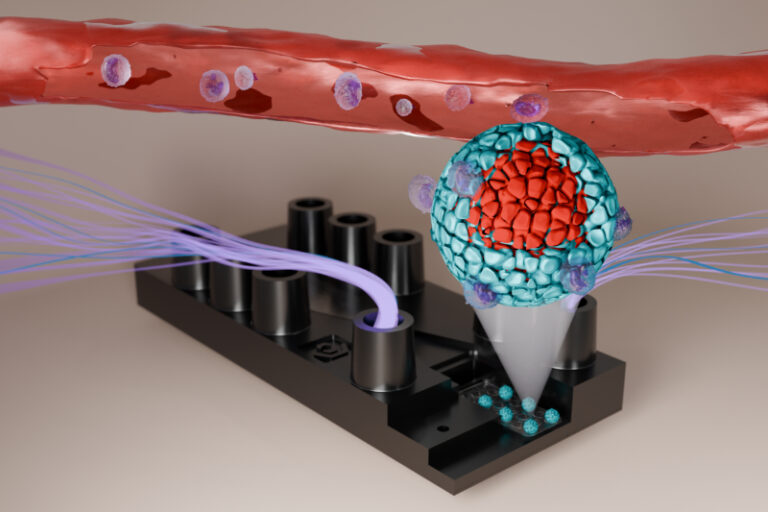
Dynamic42 GmbH starts distribution of organ-on-chip to the US and Canada
Jena-based organ-on-chip specialist Dynamic42 has inked a strategic partnership with Ohio Lumex Co., Inc. The Ohio-based company, which is an established provider of life science and analytics solutions, will exclusively distribute Dynamic42's human 3D-sphaeroid-based organ-on-chip models in the U.S. and Canadian markets.
The partnership comes against the backdrop of regulatory developments in the US Food and Drug Administration (FDA) that are driving the transition from traditional animal testing to more efficient, human-centered testing methods such as lab-on-chips or organoids. Dynamic42’s organ-on-chip technology enables realistic models of human organs and offers improved approaches for safe, sustainable and groundbreaking research.
“By combining our advanced organ-on-chip technology with Ohio Lumex’s extensive distribution network and expertise in scientific solutions, we are confident we can improve biomedical research. In doing so, we are contributing to the U.S. Food and Drug Administration’s mandated plan to phase out animal-based research in the United States,” said Martin Raasch, CEO and co-founder of Dynamic42.
Dynamic42 GmbH was founded in 2018 and is a spin-off from the Integrated Research and Treatment Center for Sepsis and Sepsis Consequences (Center for Sepsis Control and Care, CSCC) at Jena University Hospital. Dynamic42 commercialises and develops human organ-on-chip models/microphysiological systems with integrated components of the immune system for the research and testing of pharmaceutical products, novel therapies such as nanoparticles, food additives and chemical additives.
In mid-March, scientists from Düsseldorf University Hospital and Dynamic24 GmbH demonstrated the preclinical efficacy of vorinostat against pancreatic ductal adenocarcinoma (PDAC) using a 3D spheroid-on-chip model. The results published in Lab-on-a-Chip (10.1039/d4lc01016g) show a way to mimic the complex interactions of the highly fibrotic tumor stroma interspersed with immunosuppressive tumor-associated macrophages (TAM) with the tumor and the tumor vasculature without animal testing. The so-called PDAC spheroid chips thus show a way to significantly improve the validity of preclinical models.


 BioDlink
BioDlink Photo from Shawn Day on Unsplash
Photo from Shawn Day on Unsplash  adobe stock photos - deemerwha
adobe stock photos - deemerwha